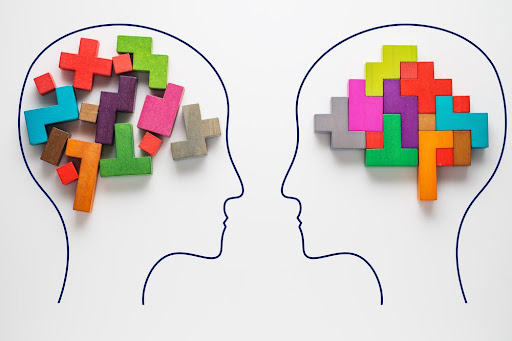
For a long time, it was thought that humans are acted upon by emotions and not reason. True, emotions do have a large part to play in human decision-making, and a lot of crucial events in the past have been motivated by emotions. For instance, World War II was fueled in part by the resentment and anger of Germany following its loss in World War I.
But it should be noted that rational thinking and emotions are not necessarily mutually exclusive. Both contribute to human decision-making, and the most successful people are usually those who are able to balance and integrate both into their minds. Rational thinking skills developed early in life enable people to make better choices, solve problems quickly, and tackle complicated situations using logic and clarity.
For a long time, it was thought that humans are acted upon by emotions and not reason. True, emotions do have a large part to play in human decision-making, and a lot of crucial events in the past have been motivated by emotions. For instance, World War II was fueled in part by the resentment and anger of Germany following its loss in World War I.
But it should be noted that rational thinking and emotions are not necessarily mutually exclusive. Both contribute to human decision-making, and the most successful people are usually those who are able to balance and integrate both into their minds. Rational thinking skills developed early in life enable people to make better choices, solve problems quickly, and tackle complicated situations using logic and clarity.
What is Rational Thinking?

Rational thinking is the capacity to think logically about situations, make rational decisions, and assess evidence, arguments, solve problems, and information in a methodical way. Rational thinkers use facts and logic instead of emotions and prejudices.
Children who develop rational thinking skills do better in school and have better social skills. For instance, studies have discovered that elementary school children benefit from learning critical thinking skills as it improves their reading comprehension and enables them to understand the confusing world surrounding them teaching critical thinking skills to elementary school children.
Rational Thinking Examples

In order to gain a better idea of what is rational thinking, below are 5 examples of rational thinking applied in everyday life:
- Assessing news sources: Verifying several sources before accepting information.
- Making economic choices: Weighing the cost and benefits before buying.
- Solving problems at school or in the workplace: Dividing difficult tasks into simple steps.
- Learning other people’s viewpoints: Being respectful of opposing opinions during discussions.
- Dealing with disagreements: Reacting logically instead of emotionally.
Parents and a child’s surroundings contribute significantly to improving their rational ability. In this article, I will present some rational thinking strategies that parents can implement to guide their children.
How to Support Children in Forming Rational Thinking?
1. Encourage Questions
We would cringe even at the prospect of kids asking us too many questions. . Yet did you realize that asking the child questions enables them to adopt rational thinking traits?
Although it can be overwhelming at times to answer all of their questions, it is vital to cultivate their curiosity and critical thinking skills by embracing their questions regarding the world around them.
Don’t be afraid to say, “I don‘t know,“ because this shows your child that learning is an ongoing process. So be open to those questions – they might just make your child a more reflective and curious human being.
2. Teach Problem-Solving Skills
Teaching problem-solving skills is one effective way to encourage your child to solve problems in a methodical manner.
This entails:
- Dividing the problem into manageable components.
- Identifying potential solutions.
- Assessing the advantages and disadvantages of each solution.
- Choosing the best option.
Remind your child to take their time with this process and that it‘s okay if they don‘t get it right the first time.
3. Emotional Regulation
Another skill that is helpful for children to learn is emotional regulation. This means recognizing and controlling their own feelings, as well as recognizing and empathizing with others’ feelings.
One of the ways you can assist your child in learning to manage their emotions is by talking openly about emotions and inquiring as to how they feel. You can model healthy behavior by controlling your own emotions positively.
4. Have a Discussion
When did you last have a healthy debate with your children on new policy, what is in the news, political problems, or life?
One of the ways to encourage rational activity is by exposing your child to different perspectives. Encouraging them to think critically and give their opinions in a respectful and constructive way will make them build confidence in their rational thinking capabilities.
A great way to encourage constructive discussions is by asking open-ended questions so that your child can venture into new ideas without fear of criticism.
5. Play Games That Require Critical Thinking
Want a fun way to build rational thinking skills in your child? Try playing strategy games that involve critical thinking and decision-making and Moonpreneur business strategy board game.
Some games that can be used to build rational thinking skills include:
- Chess, checkers, and other strategy board games
- Board games such as Settlers of Catan or Ticket to Ride
- Moonpreneur business strategy board game
These games build logical reasoning, developing strategy, and making decisions, making them excellent tools for building rational thinkers.
6. Read Together
Books are a great source to encourage logical thinking in children. Reading aids in the development of critical thinking skills, examining other points of view, and enhancing language and social skills and Reading books can help children develop critical thinking skills.
As a parent, you must take part in reading sessions. Read together and clarify complicated ideas so that your children can grow into thoughtful, curious, and informed individuals.
Below are three book suggestions to create rational thinking abilities:
- “The Magic of Reality” by Richard Dawkins
- “Thinking, Fast and Slow” by Daniel Kahneman
- “The Boy Who Harnessed the Wind” by William Kamkwamba and Bryan Mealer
7. Model Rational Thinking
Finally, model rational thinking yourself!
- Why did you make some decisions when your children were around?
- Did you recently fire an employee? Why did you do it?
- What do you think about political leaders? Why do you have some biases?
Describe your thought process to your child so that they learn logical thinking methods and how to implement them in day-to-day life.
8. Encourage Analytical Thinking
Promoting children to think critically about situations can develop their rational thinking ability. Present them with real-life situations or problems and challenge them to assess various viewpoints before arriving at a conclusion. For example, talking about ethical problems like “Should animals be tested on for science?” enables children to exercise rational thinking methods.
9. Educate the Difference Between Facts and Opinions
One of the most important examples of rational thinking is differentiating between facts and opinions. Lead children to understand that facts are evidence-based, whereas opinions are individual beliefs. Discussing this in news articles or classroom discussions can enhance their critical and logical thinking skills.
10. Encourage Debate and Argumentation
Participating in formal debates is an excellent method of cultivating logical thinkers. Let children do research on issues, make arguments, and argue against opposing positions. This process enhances their rational abilities, leading to more assertive and better-informed decision-makers.
Conclusion
Building children’s rational thinking abilities is a process that takes time and consistency. Through positive questioning, the development of problem-solving skills, discussions, and the demonstration of rational activity, parents can mold young minds into rational individuals who can make informed and logical choices.
Moonpreneur is dedicated to transforming conventional education, preparing the next generation with comprehensive learning experiences. Our Innovator Program equips students with vital skills in AI/ML, Robotics, Coding, Game Development, and App Development, fostering entrepreneurship through hands-on learning. This initiative aims to cultivate the workforce of tomorrow by integrating innovative technologies and practical skills in school curriculums.
Register for a 60-minute free workshop today!

























